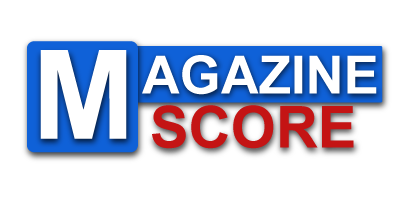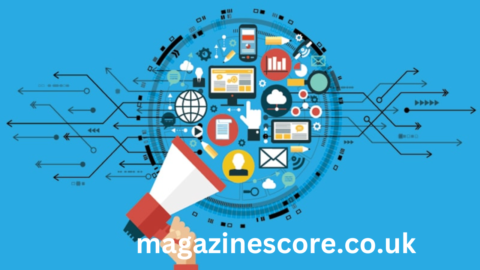Introduction to Wikifeed
Finding reliable and concise content in a world overflowing with information can feel like searching for a needle in a haystack. The internet is packed with articles, blogs, videos, and social media posts that often leave us overwhelmed rather than informed. Enter a platform that promises to simplify how we consume online information. sets a new standard for sharing and accessing knowledge by harnessing user-generated content and leveraging collaborative editing. If you’ve ever wished for clarity amidst chaos or sought trustworthy sources at your fingertips, this innovative tool might just be what you’ve been waiting for. Let’s dive into how Wikifeed revolutionizes our digital experience!
The Problem with Traditional Online Information
Sources

Traditional online information sources often have several significant drawbacks. First, the overwhelming amount of content can lead to confusion. Users frequently encounter a barrage of articles, videos, and infographics, making it hard to discern what is reliable.
Many platforms prioritize sensationalism over substance. Clickbait headlines attract clicks but deliver little value, compromising available information quality.
Moreover, search algorithms favor popular content rather than authoritative or accurate sources. As a result, users may end up with skewed perspectives based on trending topics rather than factual accuracy.
In addition, traditional platforms usually lack interactivity. Readers consume content passively without engaging in discussions or sharing insights with others.
Misinformation spreads rapidly across these channels. Without proper fact-checking mechanisms, users are left vulnerable to false narratives that can inaccurately shape opinions and beliefs.
How Wikifeed Addresses These Issues
Wikifeed tackles the challenges of misinformation and information overload head-on. By utilizing a community-driven approach, it encourages users to contribute accurate content. This creates a dynamic environment where facts are constantly reviewed and updated.
The platform employs an innovative algorithm that prioritizes reliable sources. Users can easily filter through mountains of data to find trustworthy information on any subject matter.
Additionally,
intuitive interface allows for easy navigation. Readers can explore topics in depth without feeling overwhelmed by excessive details or distractions.
Engagement is at the heart of
model. Users can ask questions, share insights, and request clarifications directly within articles, fostering a collaborative knowledge-sharing atmosphere.
Features and Benefits of Wikifeed
Wikifeed offers an intuitive platform designed for effortless information discovery. Users can explore various topics and easily find what they’re looking for without the clutter.
Interactivity is at the heart of . You can engage with content through comments and discussions, fostering a community that thrives on shared knowledge. This collaborative approach enriches the learning experience.
Another standout feature is its personalized feed. By curating content based on individual interests and preferences, Wikifeed ensures you receive relevant updates tailored just for you.
Moreover, real-time updates keep users informed about trending subjects. You will take advantage of new news or emerging trends in your areas of interest.
The user-friendly interface makes navigation seamless. Whether you’re seeking quick facts or in-depth articles, finding information has always been challenging with straightforward design.
Testimonials from Users
Users are raving about transformative approach to information sharing. One enthusiastic user shared, “makes learning enjoyable and effortless. I find myself exploring topics I never thought would interest me.”
Another noted the platform’s intuitive design: “Navigati” g through content is a breeze. It’s like I’m putting my research assistant at my fingertips.”
Many “appreciate how community-driven insights enhance their understanding of complex subjects. As one avid reader mentioned, “The coll “borate aspect means I get multiple perspectives in one place.”
Feedback” k also highlights the diverse range of topics covered. A teacher remarked, “I recommend Wikifeed to my students for quick reference on various subjects; it sparks their curiosity.”
These “genuine experiences reflect a growing trend towards more interactive and engaging ways to consume information online, with Wikifeed leading the charge.
Potential Impact on the Future of Information Consumption
As more people engage with , the platform could lead to enhanced critical thinking skills. Users will sift through various viewpoints before forming opinions, reducing echo chambers often seen in traditional media.
Wikifeed is set to reshape how we digest information. Its unique model encourages collaboration, allowing users to contribute and curate content. This democratization of knowledge fosters a diverse range of perspectives.
The shift toward bite-sized, easily accessible information also caters to shorter attention spans. Quick access to reliable data can empower individuals in their decision-making processes.
Moreover, as misinformation becomes increasingly prevalent online, sy-driven approach can help filter out inaccuracies. This may pave the way for a future where trustworthy information reigns supreme amid the noise of digital clutter.
Conclusion
Wikifeed is not just another platform; it’s a hanger in seeking and digesting information online. The challenges posed by traditional sources have led to confusion, misinformation, and an overwhelming influx of data. Wikifeed streamlines this process with its user-centric approach, making it easier for individuals to find reliable content.
Its unique features cater to the needs of modern users who crave concise yet informative insights. Wikifeed ensures that only quality information rises to the top by allowing collaborative contributions and community-driven vetting processes. This empowers users not just as consumers but also as contributors.
The positive feedback from users highlights a growing appreciation for platforms prioritizing clarity and accuracy over sensationalism. As more people turn to Wikifeed for their informational needs, it paves the way toward a future where knowledge-sharing becomes more democratic and transparent.
With its innovative model, Wikifeed is setting new standards in digital literacy. This platform has the potential to reshape our relationship with information, making it accessible, trustworthy, and engaging for everyone involved.








